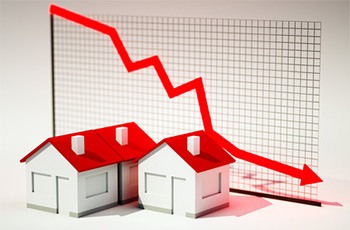 Real estate has always been considered one of the best and most stable investments, and the booming Canadian property market has delivered great wins for many homeowners. When prospective buyers line up to view a home and ultimately bid up to 20 percent higher than asking price to get it, you just know you’re onto a good thing.
Real estate has always been considered one of the best and most stable investments, and the booming Canadian property market has delivered great wins for many homeowners. When prospective buyers line up to view a home and ultimately bid up to 20 percent higher than asking price to get it, you just know you’re onto a good thing.
[quotes]It has been so good, in fact, that many people have overextended themselves[/quotes] and taken on additional debt just to get into the market. When you consider 99 percent of all Canadian businesses are small to medium-sized enterprises (SMEs) according to the Business Development Bank of Canada, it’s very likely business owners, managers and decision-makers are among the people who will be affected by a market crash.
When the Bubble Bursts
[quotesright]With economists predicting a possible fall in home prices of up to 40 percent, how can you protect your business (and yourself!) against the economic repercussions that will occur if and when the property “bubble” bursts?[/quotesright] We’ve seen the knock-on effect of a crash on the economy before.
Here are some of the risks facing small business owners in the event of this happening:
- B2C customers lose their jobs, B2B companies downsize and implement budget cuts. Either way, your sales drop.
- You lease commercial space and the owner files for bankruptcy, resulting in the need to move premises (at your own expense).
- Your business is dependent on the real estate industry, such as a broker or agent, or you provide peripheral services like renovations or maintenance.
Any of these scenarios mean trouble, and it’s worth taking steps to make sure your business operations are safe from the fallout – before it occurs.
Protecting Your Business Interests
Conducting a financial SWOT (strengths, weaknesses, opportunities, and threats) analysis with the property question in mind is a good place to start. During this exercise, a business coach or financial expert can help you identify where your primary risk lies. If you’re already heavily invested in the real estate market on either a residential or a commercial basis, for example, it’s imperative that you take steps now to shore up your position.
Some potential strategies you can use include:
#1: Reducing your reliance on credit
Economic fluctuations typically cause credit crunches and the more liquid you are when the time comes, the better you’ll be able to ride it out. [quotesright]If your business typically uses the bank’s money for operating expenses, now is a good time to look for an alternative option. [/quotesright]
#2: Maximizing your cash flow
When businesses start counting the cents, even a small discount offers encouragement for clients to pay your invoice ahead of others. Instead of waiting 60 or 90 days for payment, offer a 0.5 – 1.0 percent discount for 30-day payments and you’ll get your money in faster. The discount is easily offset by the interest you’ll save if you have to use your credit line to pay your own bills.
#3: Don’t keep all your eggs in one basket
In a property crunch, the real estate and construction industries are the first to be hit, but [quotesright]the economic ripples extend outward[/quotesright] to include people like contract workers, security personnel in commercial properties, and even the legal teams who handle real estate transfers and other documentation. Make sure you balance your reliance on these people for services or revenue with a healthy mix of other industries.
#4: Look into the future
No, we don’t mean using the proverbial crystal ball. What you can do, however, is consult authoritative sources for their opinion on the risks. [quotesright]Contact some commercial brokers[/quotesright] and get their take on the situation, the potential impact on the local economy, and what they are advising their clients to do.
#5: Renegotiate Leases Proactively
Lease renegotiation can work in your favour on two fronts:
- If you’re leasing premises for your own business, make sure you have a watertight lease agreement in place that covers you under multiple circumstances. [quotesright]If your landlord files for bankruptcy, for example, [/quotesright] a long-term lease can buy you enough time to relocate without the extra expense that typically accompanies a rushed decision.
- If you’re leasing to tenants, review your rental agreements to ensure you have a way out if they lose their income and are unable to pay.
Pay Attention!
Mostly, don’t ignore what’s happening around you. [quotes]You could wake up one day to find many of your clients out of work for years,[/quotes] while the market adjusts to the new scenario. If you operate in an industry or region where rapid real estate growth is taking place, consider what will happen to your customers in the event of a meltdown.
Before it occurs, identify where you can make changes and determine what the indicators will be for you to initiate those changes. [quotesright]Evaluate very carefully any actions that could put your business at risk[/quotesright] in the event of a crash, and avoid taking them if the risk is high.
These are all practical suggestions for any business at any time, but they are particularly relevant in times of economic uncertainty – whatever the reason.














